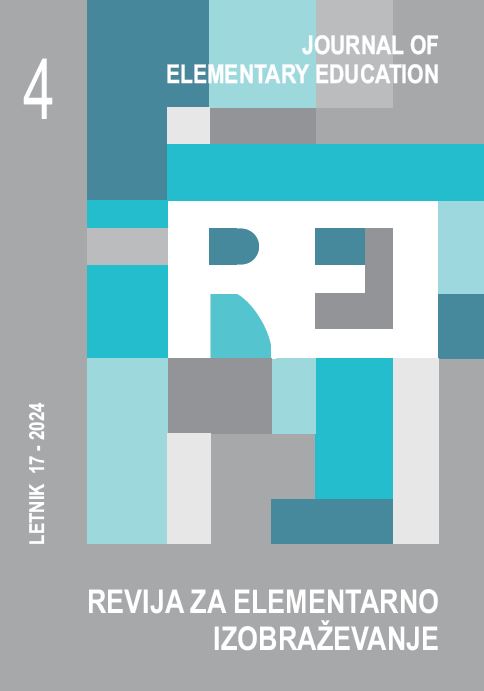Lifelong Learning Through the Prism of Educators
DOI:
https://doi.org/10.18690/rei.3812Keywords:
educator, lifelong learning, professional development, professional development.Abstract
Continuous professional development and training represent not only choices, but also an obligation and responsibility for every single educator. The aim of the research was to investigate the attitudes of educators working in kindergartens in seven counties of the Republic of Croatia, about the importance of lifelong learning. The research was conducted on a sample of 279 female educators, and a survey questionnaire was used as a measuring instrument. The results of the study indicate that educators are aware of the importance of lifelong learning and professional development. They emphasize that it enables them to develop competences and contributes to the improvement of their educational practice. The largest number of educators participate in professional training several times a year; they choose the form of training most often by the topic in which they are interested, and the form of professional training that best suits the needs of educators is the interactive workshop.
Downloads
References
Blanuša Trošelj, D., Peić Papak, P., and Zuljan, D. (2021). Teacher self-assessment of their science and technics competences and professional development. Revija za elementarno izobraževanje. Journal of Elementary Education, 14(1), 73–92.
Commission of the European Communities. (2000). A Memorandum on Lifelong Learning. Commission Staff Working Paper SEC (2000). Brussels.
Commission of the European Communities. (2001). Making a European Area of Lifelong Learning a Reality. COM (2001) 678 final. Brussels.
Kline, R. B. (2016). Principles and Practice of Structural Equation Modeling. Guilford Press.
Labak, I. (2020). Upravljanje razvojem pedagoških kompetencija. Školski vjesnik, 69 (2), 461-480.
Martinko J. (2012). Radionica – metoda interaktivnog učenja i poučavanja odraslih. Andragoški glasnik, 16(2), 165-174.
Mendeš, B. (2018). Profesionalno obrazovanje odgojitelja predškolske djece: od jednogodišnjeg tečaja do sveučilišnog studija. Zagreb: Golden Marketing – Tehnička Knjiga.
Nacionalni kurikulum za rani i predškolski odgoj i obrazovanje (2014). Zakona o predškolskom odgoju i obrazovanju (“Narodne novine”, 10/97, 107/07 i 94/13).
OECD TALIS (2009). Creating Effective Teaching and Learning Environments: First Results from TALIS.
Pavlic, K. (2015). Kontinuirano profesionalno usavršavanje i razvoj vrtićkog kurikuluma. Dijete, vrtić, obitelj, 79, 12-13.
Slunjski, E., Šagud, M., and Brajša-Žganec, A. (2006). Kompetencije odgojitelja u vrtiću – organizaciji koja uči. Pedagogijska istraživnanja, 3 (1), 45-58.
Šagud, M. (2005). Odgajatelj kao refleksivni praktičar. Petrinja: Visoka učiteljska škola Petrinja.
Šteh, B., and Šarić, M. (2020). Enhancing self-regulated learning in higher education. Revija za elementarno izobraževanje. Journal of Elementary Education, 13, 129–150.
Vizek Vidović, V. (2009). Kompetencije i kompetencijski profili u učiteljskoj i nastavničkoj profesiji. In Planiranje kurikuluma usmjerenoga na kompetencije u obrazovanju učitelja i nastavnika: Priručnik za visokoškolske nastavnike (pp. 33-39). Zagreb: Filozofski fakultet, Sveučilište u Zagrebu.
Velički, D., and Aladrović Slovaček, K. (2020). European identity and multilingualism. Revija za elementarno izobraževanje. Journal of Elementary Education, 13(3), 243–260.
Zovko, A., Vrcelj, S., and Kušić, S. (2019). Digitalna pismenost u obrazovanju odraslih-put ka inovaciji postojećih modela. Inovacije u psihološkoj nauci i praksi (pp. 274-279). Moscow: Ruski univerzitet prijateljstva naroda; Psihološki institut ruske akademije obrazovanja.
Downloads
Published
Issue
Section
License
Copyright (c) 2024 Korana Lisjak

This work is licensed under a Creative Commons Attribution 4.0 International License.
